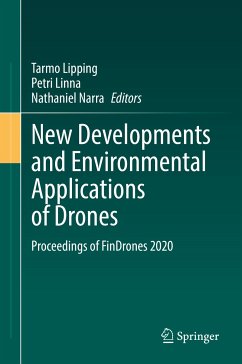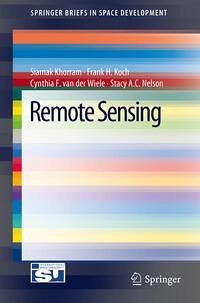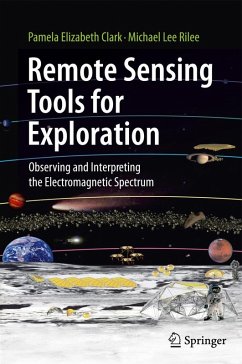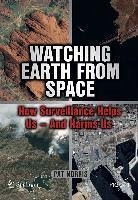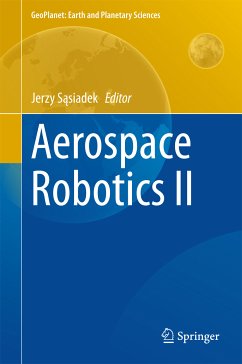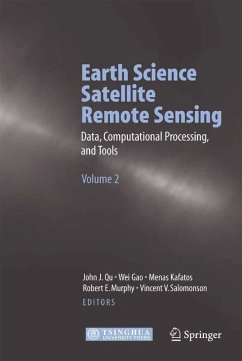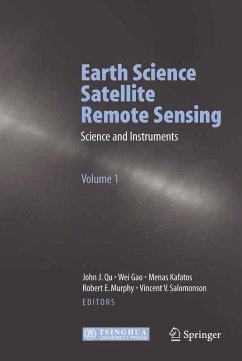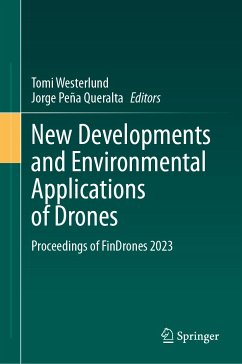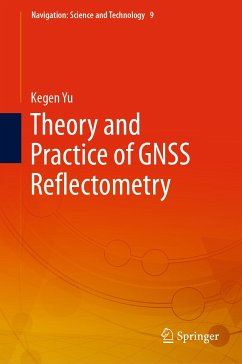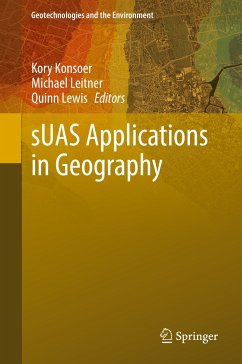
Earth Science Satellite Applications (eBook, PDF)
Current and Future Prospects
Redaktion: Hossain, Faisal
Versandkostenfrei!
Sofort per Download lieferbar
112,95 €
inkl. MwSt.
Weitere Ausgaben:

PAYBACK Punkte
56 °P sammeln!
The combined observational power of the multiple earth observing satellites is currently not being harnessed holistically to produce more durable societal benefits. We are not able to take complete advantage of the prolific amount of scientific output and remote sensing data that are emerging rapidly from satellite missions and convert them quickly into decision-making products for users. The current application framework we have appears to be an analog one lacking the absorption bandwidth required to handle scientific research and the voluminous (petabyte-scale) satellite data. This book will...
The combined observational power of the multiple earth observing satellites is currently not being harnessed holistically to produce more durable societal benefits. We are not able to take complete advantage of the prolific amount of scientific output and remote sensing data that are emerging rapidly from satellite missions and convert them quickly into decision-making products for users. The current application framework we have appears to be an analog one lacking the absorption bandwidth required to handle scientific research and the voluminous (petabyte-scale) satellite data. This book will tackle this question: "How do we change this course and take full advantage of satellite observational capability for a more sustainable, happier and safer future in the coming decades?"
Dieser Download kann aus rechtlichen Gründen nur mit Rechnungsadresse in A, B, BG, CY, CZ, D, DK, EW, E, FIN, F, GR, HR, H, IRL, I, LT, L, LR, M, NL, PL, P, R, S, SLO, SK ausgeliefert werden.



